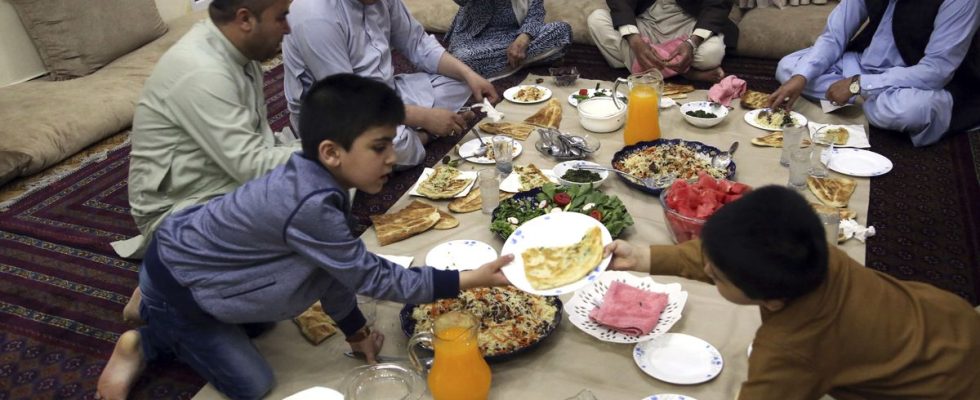The meal to break the Muslim fast during the month of Ramadan will be able to be even better protected beyond the family circle. UNESCO validated on Wednesday the inclusion of the “sociocultural traditions” of iftar as intangible heritage at the request of Azerbaijan, Iran, Uzbekistan and Turkey.
Iftar is one of the community traditions whose importance has been recognized by the Intergovernmental Committee for the Safeguarding of Intangible Cultural Heritage meeting since Monday in Kasane, Botswana.
A meal that strengthens “family bonds”
“Iftar (also called eftari or iftor in the countries concerned) is observed by Muslims at sunset during the month of Ramadan, after the completion of all religious and ceremonial rites,” explains Unesco. Marking the breaking of the fast, “it often takes the form of gatherings or meals, strengthening family and community ties and promoting mutual aid, solidarity and social exchanges,” adds the UN cultural organization.
UNESCO emphasizes that its practice “is generally transmitted within families”, and that “children and young people are often entrusted with the preparation of dishes during traditional meals”.
In several Muslim countries, it is traditional to mark iftar by eating a date – or an olive in Turkey – accompanied by water or tea. Recipes for meal dishes and pastries vary greatly depending on the region.

